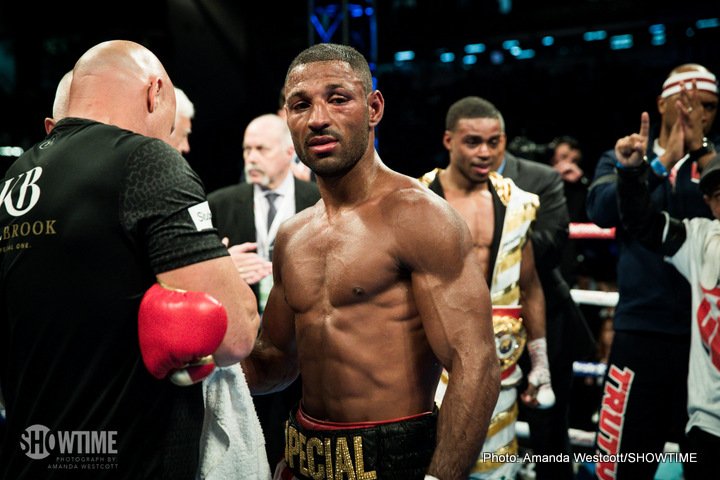It’s one of the harshest insults that can be thrown at a fighter: that of him being a quitter. Though every fighter who steps into the ring deserves immense respect, it is still considered a let down, unforgivable even, if a hero, a fighter fans have paid money to see go to war, quits during the action.
Right now, former IBF welterweight champ Kell Brook is on the receiving end, with many fans, and fellow fighters, hurling the quitter tag at him. Brook, badly busted up around the left eye, opted to take a knee in the 11th round of his thrilling fight with new king Errol Spence Junior, and though Brook says he simply could not see in that torrid round, there seem to be few people willing to cut him much slack.
Should Brook, who showed real heart after being hurt in earlier rounds, in what we must not forget was a great fight (no fan should be grumbling too loudly over not getting his or her money’s worth) be called a quitter? The fight’s ending was somewhat similar to Lucas Matthysse’s surrender to big underdog Victor Postol, who also suffered an eye injury and, in his own words, felt he was “going to go blind.”
Brook, though, has been attacked by far stronger criticism than Lucas was. On the face of it, yes, Brook quit; he made a conscious decision to take a knee. But the label of quitter still seems harsh in the Sheffield man’s case. Had Brook fought through the pain and fear, risking his eyesight, the fight, with less than two rounds to go, might have gone to the wire (unless Brook was going to pull out one massive shocker KO that saved the fight for him; this very unlikely given his handicap) but Brook was well behind (by 5 points, by 3 points, and by just one point on the other card).
But how much of a further battering would that eye have taken had Brook somehow made it to the finish line? Would his very career have been in jeopardy due to the injury? Maybe, and maybe Brook did the smart thing, opting to be able to “fight another day.” Still, not too many people are willing to give him the benefit of the doubt. Maybe it would have been more acceptable if Brook’s corner had thrown in the towel, doing the “quitting” for Brook as it were.
Brook came out a hero after his retirement loss to Gennady Golovkin up at middleweight, but there it was the corner waving the white flag, not the fighter.
